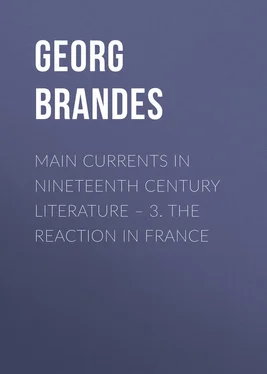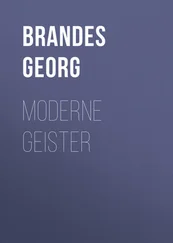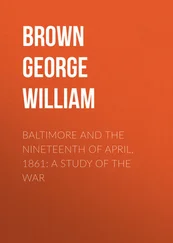Georg Brandes - Main Currents in Nineteenth Century Literature – 3. The Reaction in France
Здесь есть возможность читать онлайн «Georg Brandes - Main Currents in Nineteenth Century Literature – 3. The Reaction in France» — ознакомительный отрывок электронной книги совершенно бесплатно, а после прочтения отрывка купить полную версию. В некоторых случаях можно слушать аудио, скачать через торрент в формате fb2 и присутствует краткое содержание. Жанр: foreign_antique, foreign_prose, на английском языке. Описание произведения, (предисловие) а так же отзывы посетителей доступны на портале библиотеки ЛибКат.
- Название:Main Currents in Nineteenth Century Literature – 3. The Reaction in France
- Автор:
- Жанр:
- Год:неизвестен
- ISBN:нет данных
- Рейтинг книги:4 / 5. Голосов: 1
-
Избранное:Добавить в избранное
- Отзывы:
-
Ваша оценка:
- 80
- 1
- 2
- 3
- 4
- 5
Main Currents in Nineteenth Century Literature – 3. The Reaction in France: краткое содержание, описание и аннотация
Предлагаем к чтению аннотацию, описание, краткое содержание или предисловие (зависит от того, что написал сам автор книги «Main Currents in Nineteenth Century Literature – 3. The Reaction in France»). Если вы не нашли необходимую информацию о книге — напишите в комментариях, мы постараемся отыскать её.
Main Currents in Nineteenth Century Literature – 3. The Reaction in France — читать онлайн ознакомительный отрывок
Ниже представлен текст книги, разбитый по страницам. Система сохранения места последней прочитанной страницы, позволяет с удобством читать онлайн бесплатно книгу «Main Currents in Nineteenth Century Literature – 3. The Reaction in France», без необходимости каждый раз заново искать на чём Вы остановились. Поставьте закладку, и сможете в любой момент перейти на страницу, на которой закончили чтение.
Интервал:
Закладка:
It is not difficult to understand how it was that Lucinde was barren of any social results. But though the book had no practical outcome, though it was too feeble to effect any kind of reform, there was, nevertheless, something practical underlying it.
Let us cast a glance at the principal characters. They stand out in strong relief upon a background of the profoundest scorn for all the prose of real life and all the conventions of society. The book is in no wise ashamed of its erotic theories; in its conscious purity it feels itself elevated above the judgment of the vulgar: "It is not only the kingly eagle which dares to scorn the screaming of the ravens; the swan, too, is proud, and pays as little heed. Its only care is that its white wings shall not lose their brightness; its only desire, to cling, unruffled, to Leda's breast, and breathe forth all that is mortal in it in song."
The image is pretty and daring, but is it true? The story of Leda and the swan has been treated in so many ways.
Julius is a pessimistic ( zerrissener ) young man, an artist, of course. We are told in the Lehrjahre der Männlichkeit , the chapter containing what Flaubert has called l'éducation sentimentale , that it was strikingly characteristic of him that he could play faro with apparently passionate eagerness, and yet in reality be absent-minded and careless; he would dare everything in the heat of the moment, and as soon as he had lost would turn indifferently away. Such a trait may not excite our admiration, but it at all events produces a pretty distinct impression of a pleasure-loving, blasé young man, who, feeling no powerful impulse towards action, seeks for excitement while leading a life of careless, coldly despairing idleness. The history of his development is indicated, as is often the case with quite young men, simply by a succession of female names.
Of the women in question we have only very slight sketches, like the pencil-drawings in an album. One of these introductory portraits is rather more elaborated than the rest, that of a dame aux camélias sunk in Oriental indolence, who, like the original dame aux camélias , is raised above her position by a true passion, and dies when she is neither understood nor believed. She dies by her own hand, makes a brilliant exit from life, and seems to us, as she is described sitting in her boudoir with her hands in her lap, surrounded by great mirrors and inhaling perfumes, like a living image of the æsthetic stupor of self-contemplation and self-absorption, which was the final development of Romanticism. After passing through numbers of erotic experiences, all equally and exceedingly repulsive, Julius finally makes the acquaintance of his feminine counterpart, Lucinde, whose impression is never effaced. "In her he met a youthful artist" (Of course!), "who, like himself, passionately worshipped beauty and loved nature and solitude. In her landscapes one felt a fresh breath of real air. She painted not to gain a living or to perfect herself in an art" (On no account any purpose or utility!) "but simply for pleasure" (Dilettantism and irony!). "Her productions were slight water-colour sketches. She had lacked the patience and industry required to learn oil-painting." (No industry!) … "Lucinde had a decided leaning towards the romantic" (Of course she had; she is romance incarnate!). "She was one of those who do not live in the ordinary world, but in one created by themselves… With courageous determination she had broken with all conventions, cast off all bonds, and lived in perfect freedom and independence." From the time when Julius meets her, his art too becomes more fervid and inspired. He paints the nude "in a flood of vitalising light;" his figures "were like animated plants in human shapes."
With Julius and Lucinde life flows on smoothly and melodiously, "like a beautiful song," in perpetually aroused and satisfied longing. The action passes, as it were, in a studio where the easel stands close to the alcove. Lucinde becomes a mother, and their union is now the "marriage of nature" ( die Naturehe ). "What united us before was love and passion. Now nature has united us more closely." The birth of the child gives the parents "civic rights in the state of nature" (probably Rousseau's), the only civic rights they seem to have valued. The Romanticists were as indifferent to social and political rights as Kierkegaard's hero, who was of opinion that we ought to be glad that there are some who care to rule, thereby freeing the rest of us from the task.
VII
"LUCINDE" IN REAL LIFE
Behind this indistinct picture lay a far more definitely outlined reality. The youthful life of the hero corresponded pretty accurately, as Friedrich Schlegel's letters show, with that of the author. In those days Berlin had not yet become pious, but was, according to the evidence of contemporaries, a species of Venusberg, which none approached with impunity. The example of the throne sanctioned every species of moral licence. Enthusiasm for art and literature superseded the official morality which a short time before had been so powerful, but from which men were rapidly emancipating themselves.
In the autumn of 1799, the year in which Lucinde was published, Friedrich Schlegel wrote to Schleiermacher: "People here have been behaving so outrageously that Schelling has had a fresh attack of his old enthusiasm for irreligion, in which I support him with all my might. He has composed an epicurean confession of faith in the Hans Sachs-Goethe style." This was Der Widerporst
Конец ознакомительного фрагмента.
Текст предоставлен ООО «ЛитРес».
Прочитайте эту книгу целиком, купив полную легальную версию на ЛитРес.
Безопасно оплатить книгу можно банковской картой Visa, MasterCard, Maestro, со счета мобильного телефона, с платежного терминала, в салоне МТС или Связной, через PayPal, WebMoney, Яндекс.Деньги, QIWI Кошелек, бонусными картами или другим удобным Вам способом.
1
G. L. Plitt: Aus Schelling's Leben , i. 309.
2
G. Brandes: Samlede Skrifter , i. 464.
3
Whence this trembling, this nameless horror, when thy loving arms encircle me? Is it because an oath, which, remember, even a thought is sufficient to break, has forced strange fetters on thee?
Because a ceremony, which the laws have decreed to be sacred, has hallowed an accidental, grievous crime? Nay – fearlessly defy a covenant of which blushing nature repents.
O tremble not! – thine oath was a sin; perjury is the sacred duty of the repentant sinner; the heart thou gavest away at the altar was mine; Heaven does not play with human happiness.
4
Goethe, Tag- und Jahreshefte , 1802; G. Waitz, Caroline , ii. 207; Goethe-Jahrbuch , vi. 59, &c.
5
"Your opinion of Alarkos is mine; nevertheless I think that we must dare everything, outward success or non-success being of no consequence whatever. Our gain seems to me to lie principally in the fact that we accustom our actors to repeat, and ourselves to hear, this extremely accurate metre." — Goethe .
6
"Their colours sing, their forms resound; each, according to its form and colour finds voice and speech… Colour, fragrance, song, proclaim themselves one family."
Читать дальшеИнтервал:
Закладка:
Похожие книги на «Main Currents in Nineteenth Century Literature – 3. The Reaction in France»
Представляем Вашему вниманию похожие книги на «Main Currents in Nineteenth Century Literature – 3. The Reaction in France» списком для выбора. Мы отобрали схожую по названию и смыслу литературу в надежде предоставить читателям больше вариантов отыскать новые, интересные, ещё непрочитанные произведения.
Обсуждение, отзывы о книге «Main Currents in Nineteenth Century Literature – 3. The Reaction in France» и просто собственные мнения читателей. Оставьте ваши комментарии, напишите, что Вы думаете о произведении, его смысле или главных героях. Укажите что конкретно понравилось, а что нет, и почему Вы так считаете.












